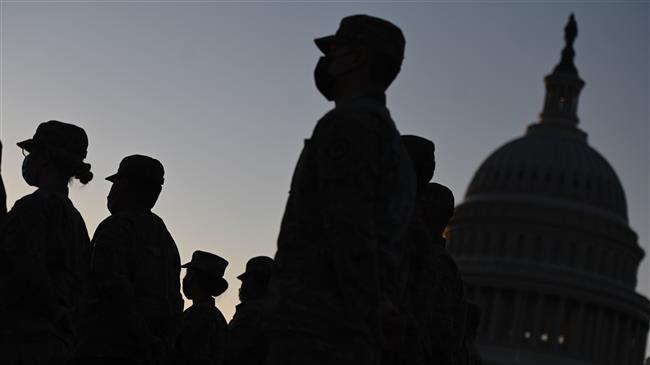Pentagon: Extremist groups aggressively recruiting US military service members
The Pentagon has acknowledged that extremist groups are "very aggressively" recruiting US military service members, amid reports that a significant percentage of former President Donald Trump’s extremist supporters who launched a violent march on the Capitol on January 6 were active duty service members and others were military veterans.
A top spokesman of the Department of Defense (DoD) made the revelation on Monday, confirming earlier media reports that far-right and white supremacist extremist groups had been actively recruiting Americans with military background.
“Some of these groups are very organized. They very aggressively recruit soon-to-be veterans,” spokesman John Kirby said at a news conference at the Pentagon in Washington, DC.
US Secretary of Defense Lloyd Austin last week ordered a DoD-wide “stand-down” to tackle the problem and address extremism in the ranks.
This is “an opportunity for leadership to listen to the men and women they lead and to their concerns, to their experiences and maybe even their possible solutions for how to tackle this problem,” Kirby said.
Far-right militia movements are reportedly targeting US troops and veterans due to their experience with weapons, organization and leadership skills.
Top US military officials have long struggled with rooting out extremism in the military and preventing troops from joining extremist groups, though the issue came to the forefront after angry protesters raided the Capitol last month following the disputed 2020 presidential election which Trump believed was rigged in favor of Joe Biden, the Democrat who was later declared the winner.
According to an analysis based on court cases, nearly 1 in 5 people charged in the insurrection were either active duty service members or veterans.
“We certainly need to take a look at how we’re educating potential recruits when they’re still civilians and before they sign on the dotted line, clearly. There’s probably education that we need to do while people are in uniform and in service about the pull of some of these extremist groups,” Kirby said.
That training would inform them of "what's waiting for them on the other side and who might be waiting for them on the other side," he added.
Kirby stressed that the stand-down is just one step in what Austin believes will be a "very deliberate process to try to tackle this problem."
"[Austin] understands a one day stand down across the force isn’t going to solve everything, but it might bring to light concerns and experiences [of which] we're otherwise not aware," he said.
He added that information gleaned from the effort “will inform later procedures, policies or actions the secretary puts in place going forward.”
Iran: US airstrikes on Yemen war crimes, violation of international law
Yemeni armed forces down F-18 fighter jet, repel US-UK attack: Spokesman
Iran warns against US-Israeli plot to weaken Muslims, dominate region
VIDEO | Public uproar in US against Israeli regime
‘Ghost town’: 70% of Jabalia buildings destroyed by Israel
Mother’s Day: Sareh Javanmardi’s inspiring journey as Paralympic champion and mother
Russia downs over 40 Ukrainian drones as Putin vows 'destruction' on Kiev
VIDEO | Yemen: A bone in Israeli neck











 This makes it easy to access the Press TV website
This makes it easy to access the Press TV website